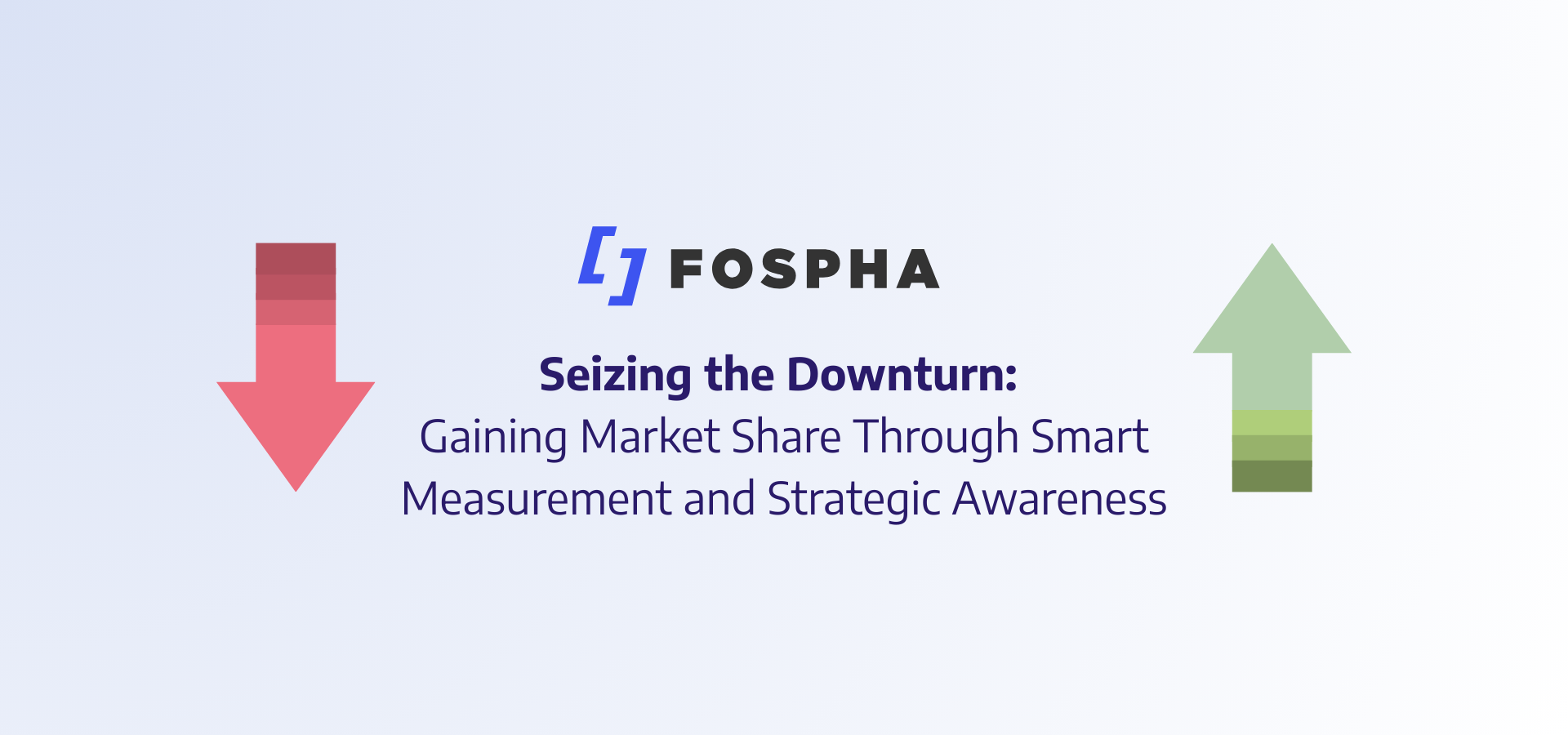Google Analytics 4 (GA4) has been a hot topic among marketers lately, and for a good reason. As with any major update, GA4 introduces new challenges for businesses and marketers alike. The task of navigating these changes can be daunting. In this blog, the Fospha team explains what GA4 is, the challenges it brings, and actionable solutions to help you thrive during the transition to GA4.
So what is GA4?
GA4 is the upgraded version of the existing Google's Universal Analytics platform (also known as GA3). The clock is ticking on Universal Analytics as it has been announced that the platform will be phased out and replaced with GA4 by July 2024, forcing all users to make the transition or lose access to GA.
Why haven’t all brands already made the transition?
Although the hard-stop deadline of July 1st for transitioning to GA4 has been clear for some time, many brands have not yet migrated. There are many reasons for this - almost all data projects take time, and in the current economic climate, many eCommerce and marketing teams are already being asked to achieve more with less. The migration is an unwanted headache for most, but the risk of approaching the summer deadline without a plan is significant and increasingly is drawing people's attention.
The data-migration challenge
The biggest challenge brought by GA4 is that setting up a new GA4 account doesn’t automatically move brands' historical data from Universal Analytics to the new platform. This represents years of marketing data that can’t be unified and thus transferred between the two solutions.
This poses a major concern for marketers that heavily depend on analytics to make crucial business decisions based on year-on-year (YoY) and month-on-month (MoM) trends, especially for peak periods like Black Friday and Christmas. These time comparisons are vital for many reasons - they allow marketing teams to plan effectively, to adjust strategies optimize ROI in real time, and provide means of communicating progress to leadership and ensuring that all key stakeholders and decision-makers are up-to-date on marketing performance and impact.
This comes on the back of a tumultuous couple of years for marketing data, in which marketers have already been deprived of valuable signals that were essential for their strategy. Particularly, the changes to Meta's attribution model have removed a key data source, with the model not only losing significant accuracy in the summer of 2021, but also changing on a near-monthly basis since then, making it an unreliable source of long-term insights. In light of this, many have leaned more heavily than ever on the attribution and analytics data in GA.
Additional challenges
The feature set in GA4 is a controversial topic amongst marketers, with some praising expanded functionality and others bemoaning the loss of key features they relied on. Major updates include an expanded scope of analytics to include both mobile and website visibility, deeper analytics capabilities, and a much tighter integration with other Google products such as Google Ads.
That said, there are still many concerns about making the move across. As well as the data loss challenge discussed above, GA4 will bring about massive learning curves for marketers, whom will need to adapt to different metrics, dashboard, reports and functionalities. See below.
-
Adapting to new metrics: Unlike Universal Analytics, which relies on sessions and pageviews, GA4's measurement model is exclusively based on events, meaning that marketers will be losing familiar metrics like average session duration and need to adapt their KPIs tracking and reporting.
- More customization required: Some basic conversion tracking is harder in GA4. In fact, one of the most important conversion actions - successful submission of contact form - is made a lot more complex on GA4 compared to Universal Analytics, and requires a lot more customization. This is because GA4 is not based on sessions and pageviews and instead processes data as various event types, leading to users only have conversions based on event data. To overcome this challenge, marketers will need to revert to Google Tag Manager (GTM) and create conversions to track form submissions using a Thank You page. This process is very involved and takes a lot more time than with UA.
- Missing standard reports: GA4 also lacks many familiar reports from Universal Analytics. In UA there are 30 reports within the Acquisition reporting bucket alone, including Traffic acquisition reports - especially useful for DTC brands to understand how various traffic sources perform in driving users to site. In GA4 there are only 3 acquisition reports, so the reports you are used to looking at will not necessarily be migrated.
- No automated email exports: Another big miss is the inability to set up recurring email exports in GA4. This functionality saves marketers an awful lot of time and, for agencies, can ensure that their clients get key reports scheduled out during OOO or festive periods.
- Less intuitive: The best way to understand the public’s opinion on GA4 is going on Twitter, where the new platform has been described as “horrible”, “awful” and “unusable”. The opinion that GA4 isn’t in a state to be ready to be rolled out and needs a lot of improvement seems to be widespread across marketers networks. For example, the simple menu layout makes it more difficult to understand when something has been released or updated and even the report builder is overall a lot less flexible, whereby one can’t adjust column widths.
What are the alternatives?
All in, this is clearly a challenging situation. However, some are viewing it as a chance to evaluate their choices regarding their data tracking and storing practices.
It's no secret that GA's marketing measurement has never been the most accurate tool available to marketers. Fospha research has shown that relying on GA or ad-platform data for marketing attribution gives the wrong answer in 60% of cases. In particular, solely relying on the now deprecating Universal Analytics does not allow marketers to track offsite activity since impressions cannot be measured in-platform. With the transition to GA4, accurate sales attribution has become even more complicated, adding another layer of complexity to an already challenging task.
Fospha is designed to solve for this, taking GA attribution data as one input, but combining it with data on customer journeys, and top of funnel spend and impressions, to recreate a view of attribution that fairly credits onsite and offsite activity from all digital channels. This takes the broken view of performance that is standard in Google Analytics, and transforms it into a useful model that is actionable across all digital channels, allowing you to find wasted spend and capitalize on growth opportunities missed under GA.
Crucially, Fospha is also platform-agnostic when it comes to the GA instance we onboard. That means that for new customers, we are able to onboard historic UA data and ongoing GA4 into one view. This allows you to retain the ability to make year over year comparisons, even as you switch between UA and GA4.
In addition to reconciling the two datasets, Fospha also helps brands overwrite and configure their channels grouping on GA4 so that the marketing team can continue reporting on familiar Channel Groups and Sources without disruptions. In a similar way, we eliminate the internal change management process required for teams to get using GA4 reporting and instead, provide clients with user-friendly UI of your marketing performance at a granular level..
Finally, we overcome additional challenges by providing brands with the ability to build custom Fospha analytics reports and schedule these to be sent out to specific stakeholders.
To talk to Fospha about implementing this solution, please fill out the form at the bottom of this page!


